Carleton Awards Student Funding for EDI-Related Research
Carleton has awarded six students funding to support summer research projects related to equity, diversity and inclusion (EDI).
Established last year, the Student Equity, Diversity and Inclusion (EDI) Research Award responds to a specific recommendation in Carleton’s EDI Action Plan and is a landmark recognition for EDI scholarship in Ontario higher education. Students will present their research process and findings during Carleton’s annual Inclusion Week in Fall 2022.
The award is funded by the Office of the Provost and Vice-President (Academic) and administered by the Department of Equity and Inclusive Communities.
The following students are recipients of the 2022 Student EDI Research Award.
Table of Contents
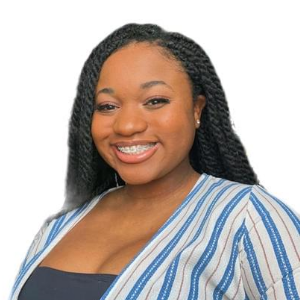
Lindsey Alcy
Lindsey Alcy is a third-year Honours Bachelor of Global and International Studies student specializing in global law and social justice with a minor in sociology. She is undertaking a project that will address complex issues related to food security—a topic close to her heart.
“I am Haitian Canadian and for the first time in my life I get to use myself unapologetically to do this research,” Alcy said. “It’s important to me because it’s my mother land.”
“My goal is simple, yet difficult: it’s to change the narrative, to show the best parts of Haiti that are not shown in the media. I want to show that their story is not just suffering, there is a whole other side we are not seeing,” she said.
Alcy is collaborating with Prof. Marylynn Steckley (Arthur Kroeger College of Public Affairs) to develop and apply a new food sovereignty tool of health in collaboration with the Centre for Nutrition and Education for Women’s and Children in Haiti.
“Lindsey is a compassionate, bright, dedicated young woman who has so much integrity and ambition,” said Steckley. “She has so much potential to contribute to the Haitian community in Canada and to Haiti itself, and strong and noble desire to give back and participate in social change and community-based research that is driven by Haitians themselves.”
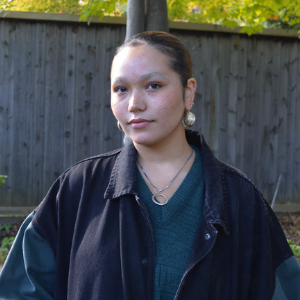
Felicity Hauwert
Felicity Hauwert is a fourth-year Honours Bachelor of Sociology student whose research will examine relationships between sound and healing. She is particularly interested in the experiences of racialized communities with respect to sound, especially during and after the “freedom convoy” that took place in Ottawa earlier this year.
Through her research, Hauwert aims to create localized audios that provide a healing experience for people living inside and outside Ottawa. Using recorded sound from various environments, she will also explore the ethics and protocols that surround working on rural Indigenous land.
“How do I get consent from the land? How do I listen? I want to create a methodology for non-Indigenous people to know how to ethically work with the land and be respectful to land stewards,” said Hauwert, adding that this award is providing her with a chance for her to invest in the research area she’s interested in full-time and pivot outside her academic studies.
Hauwert is working alongside Prof. Zoe Todd (Sociology and Anthropology) to learn how to listen to the land. “Hauwert is a very dedicated and brilliant student who has done amazing work in her department to support student success and lead discussions around issues like racism and decolonization,” said Todd.
“This funding from the Provost’s Office helps students learn how to do research in a nourishing and positive environment and expand their work in exciting ways.”
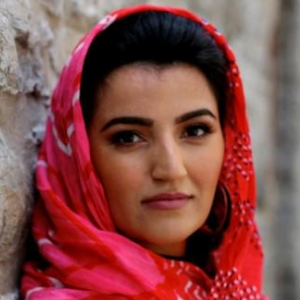
Maryam Sahar
Maryam Sahar is a second-year master’s student in Migration and Diaspora Studies whose research will answer whether there are unconscious biases in Canadian Refugee policies.
Sahar’s background as an Afghan refugee who came to Canada at the age of 17 under a special measure program for Afghan interpreters is one reason that she was inspired to conduct this research.
“I have personally benefited from Canadian generosity, and I want it to be extended to other refugees and people fleeing conflict,” she said, adding that she hopes her research will inform future Canadian government responses to crises.
Sahar is working with Prof. James Milner (Political Science) to compare administrative measures and examine biases in Canada’s response to the Afghanistan and Ukraine refugee crises. The research project is being undertaken in conversation with the Refugee Advisory Network of Canada to help advise the Government of Canada on its engagement with global refugee issues.
Prof. Milner describes Sahar’s ability to balance her lived experience with a desire to understand the broader context within which displacement happens.
“I hope Maryam develops and demonstrates the capacity for academic research to influence public and policy debates, and for her to have this as an experience on which she can build,” he said. “I think the positionality of the researcher provides opportunities to ask new questions and produce knowledge in a different way.”
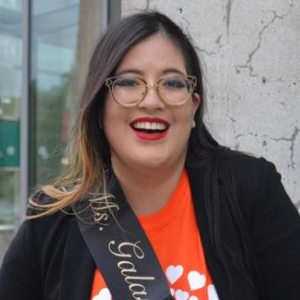
Carolyn Simon
Carolyn Simon is a second-year social work student minoring in Indigenous Studies. Their research will explore ways to decolonize and Indigenize education in the School of Social Work.
“I noticed that a lot of the pedagogy and social work education is rooted in settler colonial ideology,” said Simon.
Their research aims to develop practical tools to change this and to bring Indigenous ways of knowing into the classroom. They hope to start by focusing on decolonizing the classroom, then move into general pedagogies and discussing ideas with instructors on how to integrate these pedagogies into their syllabi and course content.
“In my program, I see only a few Indigenous students and it’s quite often exhausting because I feel like the course delivery doesn’t always fit culturally.” Simon hopes that this research will provide faculty and students with resources and a basis for what it means to decolonize course content and methods of assessment. Simon is working with Prof. Beth Martin (Social Work) on this project. The pair have previously worked together through the I-CUREUS program on a similar topic. “Carolyn is one of the students I have learned a lot from, and I know how dedicated they are to decolonization,” says Martin.
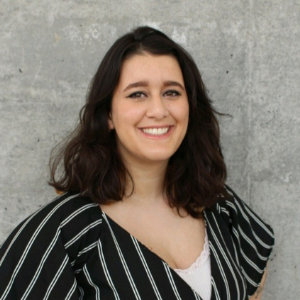
Priya Van Oosterhout
Priya Van Oosterhout is an Honours Neuroscience and Mental Health student minoring in Biology whose research will discuss racial disparities in substance use research. Van Oosterhout will look at the participants in more mainstream substance use studies to observe representation across different racial groups.
“Substance use tends to disproportionately affect people of colour because of various socioeconomic factors,” said Van Oosterhout. “This got me thinking about the lack of representation in substance use research and how well-represented people of colour are in the research”.
Van Oosterhout hopes her research will positively affect the way substance research is conducted in the future. “The aim of the study is to summarize these disparities, highlight them and figure out where we can fill in the gaps,” she said.
Van Oosterhout is working with Prof. Zachary Patterson (Neuroscience), who describes her as an engaged, proactive student who contributes meaningful ideas to classroom discussions.
Patterson’s goal is that she will find a sense of pride in the fact that this research study is her original idea and that she will gain confidence from leading such an important project.
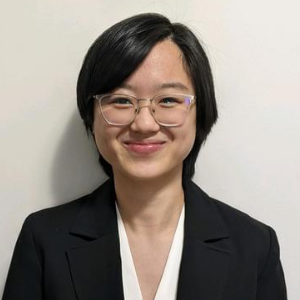
Samantha Wong
Samantha Wong is a fourth-year biomedical and mechanical engineering student who will research practical demonstrations that introduce engineering concepts and materials to young women in high school with the goal of increasing interest among young women in science, technology, engineering and mathematics (STEM) disciplines and decreasing the gender gap.
“There are a lack of external influences and there are stereotypes about what engineering entails, as in what it means to be an engineer and who gets to be an engineer,” said Wong. “I think that really affects young women who may or may not choose to pursue STEM disciplines.”
Wong is working with Prof. Andrew Harris (Mechanical and Aerospace Engineering) to develop an accessible, entertaining, functioning prototype that features methods and materials that can be easily replicated by high school teachers and demonstrators.
“I am really excited about this project,” said Wong. “This is something I really want to work on and can relate to. It would have been extremely helpful when I was a younger girl!”
Prof. Harris describes Wong as an engaged student, adding that he hopes she gains practical design and engineering experience from this opportunity and a sense of accomplishment in promoting and encouraging young women to pursue STEM fields.